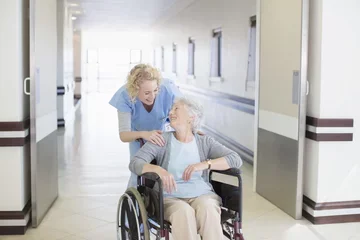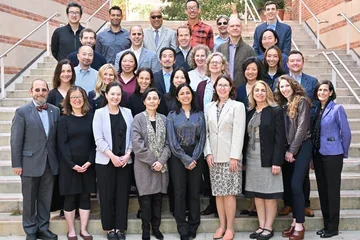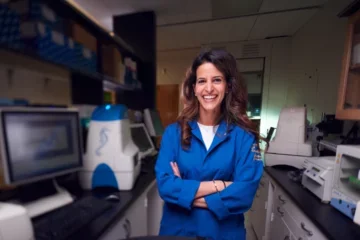Types of Oncology Specialists
A UCLA Doctor Explains
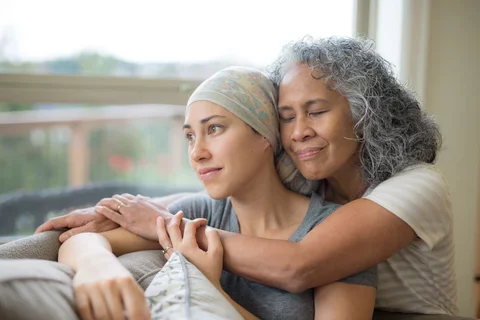
A Day in the Life of Dr. Gary Schiller, Professor of Hematology Oncology
New therapies and technologies change the way we practice oncology, the diagnosis and treatment of cancer. Oncology specialists lead these innovations in patient care, each focusing on a different area of cancer treatment: medicine (such as chemotherapy), radiation, and surgery.
Each cancer-fighting treatment method requires different training, which often starts early in medical school. Gary Schiller, MD, professor of hematology-oncology at the David Geffen School of Medicine at UCLA, says most medical students start focusing on oncology during their second years or clerkships.
"We were all drawn in by the excitement of oncology, but now as physicians who care for oncology patients, we're defined by the tools of our trade," says Dr. Schiller, who also directs the UCLA Hematologic Malignancy/Stem Cell Transplantation Program.
"We each use medical agents, radiation or surgery accordingly to treat our patients."
Medical Oncology
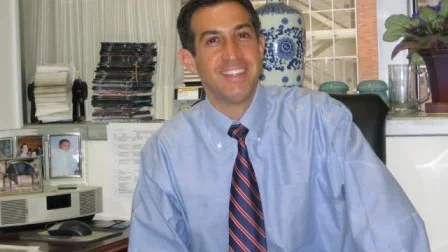
Medical oncologists use medication-based treatments, fighting cancer with chemotherapy, cancer immunotherapy and a range of other drugs.
"We have various forms of chemotherapy at our disposal, including oral, subcutaneous and IV drugs. We also use immunotherapy," Dr. Schiller says. "Our rapid drug development and immunotherapeutics are drawing many young people into the field because they're interested in the dynamic nature of our treatment options."
Medical oncologists graduate from a four-year medical or osteopathic school and complete a three-year residency, often specializing in internal medicine or pediatrics.
After residency, future oncologists usually complete fellowships (3-5 years) in hematology-oncology
(What Does a Hematologist Oncologist Do? Click the link to learn more...)
Radiation Oncology
Radiation oncologists use ionizing radiation to treat cancer, often in combination with surgery and chemotherapy. Radiation therapies also relieve symptoms of incurable cancers.
"Radiation oncologists harness the therapeutic properties of radiation to treat and cure cancer," explains Allen Chen, MD, professor of radiation oncology. "We are oncologists first, in that we have to understand cancer as a disease, its biology and patterns of spread. Then we determine how radiation fits into the general scheme of treatment."
Radiation oncologists complete four years of residency training in addition to an internship. Residency training focuses on clinical oncology, radiation treatments, and the physics and biology of ionizing radiation.
(What Does a Radiation Oncologist Do? Click the link to learn more...)
Surgical Oncology
Surgical oncologists treat malignancies using surgical techniques to remove cancer tissue or tumors. These physicians complete a five-year residency in general surgery before entering a two-year fellowship in complex general surgical oncology.
Types of Oncology Specialists
Each type of oncology specialist goes through different training, but each program involves cross-discipline teamwork and collaboration.
"People tend to be interested in a career in oncology based on a personal or family experience with cancer exposure or a desire to perform research or a bit of both," Dr. Schiller says. "How they decide to pursue medical, radiation or surgical is more mysterious."
